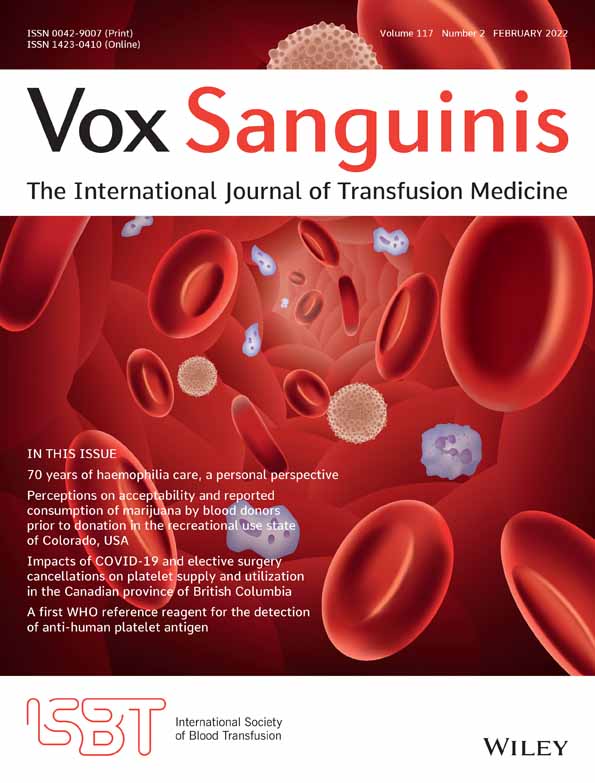Perceptions on acceptability and reported consumption of marijuana by blood donors prior to donation in the recreational use state of Colorado, USA
FUNDING INFORMATION:None.
Abstract
Background and Objectives
Blood donor opinions and behaviours regarding marijuana use are not well known nor is the potential impact to the blood supply. We sought to assess opinions and frequency of marijuana use in proximity to blood donation via a survey of blood donors at a hospital-based blood collection site in a state where recreational marijuana use has been legal since 2012.
Materials and Methods
Blood donors at least 18 years of age who donated between 2014 and 2019 were surveyed electronically, with all responses kept anonymous to encourage engagement and accurate reporting.
Results
Overall response rate was 8.03% (12,186 surveys sent with 979 responses). Of responding donors, 23.5% indicated that they felt that consuming various forms of marijuana was acceptable prior to blood donation. Marijuana use <72 h prior to blood donation was reported in all demographic groups surveyed except age 18–24 years. Of donors who reported daily marijuana use, 47.4% indicated >20 donations and 52.6% indicated apheresis platelet donation.
Conclusion
Nearly one quarter of responding blood donors feel that marijuana use is acceptable prior to blood donation, and nearly every demographic group surveyed indicated use of marijuana <72 h prior to donation. These results suggest the need for additional research to determine if marijuana-related metabolites in collected blood products negatively impact recipients, particularly vulnerable populations such as children and pregnant women. These results may inform whether changes in donor screening or testing for marijuana use are warranted.
CONFLICTS OF INTEREST
The authors declare no conflicts of interest.




